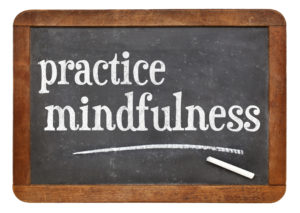Leonard Scheff, an American Trial Attorney, used to rely on anger to fuel his court persona; that is, until he realized just how destructive anger is. He thereafter co-authored the book “The Cow In The Parking Lot, A Zen Approach To Overcoming Anger”. Mr. Scheff’s book inspired me to write this article as a small way to encourage my colleagues in the profession to consider and adopt (or continue) a mindful approach to law and legal services.
In his book, Scheff suggests an approach to overcoming anger by transforming it rather than by simply managing it. The “gist” of the book, in my opinion, is that we get to choose how we process the events in our lives and whether we choose to foster anger by reframing these events.
The Legal Profession Shifting Towards Mindfulness
Scheff’s perspective is interesting given the challenges and the changing nature of the legal profession.
The legal profession in the United States has often been characterized by a sense of anger and outrage, in the fight for justice, in order to attract clients or pursue client objectives. Is this productive and is there another way?
A more “mindful” approach to law practice offers a better solution for legal professionals, clients and society.
What a Mindful Approach to Law Means?
Like it or not, legal matters are often characterized by unhealthy doses of anger. Phrases such as “we will fight for your rights” or “get justice” are all too commonplace.
That said, anger simply isn’t healthy. The health risks of chronic anger such as high blood pressure and heart problems are well known, and Healthycures.org recently ran a story about how festering anger can lead to chronic conditions such as fibromyalgia.
So, isn’t it time that the legal profession ask itself, what are we promoting?
As an alternative, what would a more mindful “Zen” approach to law practice look like. Actually, this is not a new idea…those in the collaborative law movement have been working on it in the family law arena for years.
To me, this approach would look a lot like diffusing anger rather than promoting it. We know that anger often stems from our “ego” and a sense of entitlement. What if this were to change to sense of gratitude?
In my experience in the Florida estate planning world, folks often enter our office with a good amount of anger. For example, a potential client might express a lot of anger about one of the adult children, or a parent, sibling, etc. We also often see planning that reflects a less favorable attitude toward one of the children or another family member. Anger can dictate our actions and influence the outcome or decisions.
Legal Services that Foster Healing and Compassion
It is a personal conviction for me to not foster anger or a sense of entitlement when it comes to consulting with someone about any legal matter or dispute.
Typically, questions like: Is that really the outcome that you’re hoping for?..or…How will you feel about this decision even if you win?…can influence a deeper reflection on the issues and inspire different choices for the client.
I believe this kind of thinking transcends all areas of law, whether estate planning, divorce or commercial litigation. Even the most contentious disputes, where someone is clearly in the wrong, can be handled in a way that diffuses anger and aims at a healing process. Harmony can be fostered, in my opinion, even if it is necessary to hold certain parties accountable for negative actions.
This is all just food for thought of course, in the hope of influencing a more harmonious legal profession and a better world.
Steve Gibbs, Esq.
This article is an updated version of an original post dated October 22, 2015.



You must log in to post a comment. Log in now.